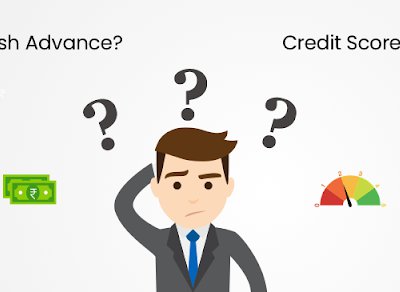Just what is financial independence? Conventional wisdom would define it as freedom from debt, having a well thought-out financial plan which allows you to steadily grow your savings, and having an easily accessible cash reserve of at least 3 months living expenses.
This is probably a very conservative estimate of financial independence - many experts suggest that given the current economy and sluggish job market, consumers would be wise to have 6 months to a full year of living expensive tucked away in case of a job loss or other monetary emergency.
Hopefully, you are already on a sound path to achieve your financial goals. But what if you're not? How do you make the positive changes that are needed to successfully manage your finances? The concept itself is fairly simple - stop spending more than you earn. Many times that is easier said than done.
The first step in learning to control your spending is figuring out what you actually do spend. Unfortunately, millions of Americans have absolutely no clue where their money goes each month. So to get your financial house in order, you should begin with the following financial basics. They should give you a firm foundation on which to build a safe and secure financial future. If you you need some extra cash or a payday cash loan please rates and fees.
The Financial Basics
People who have no control over their finances tend to do many different things to sabotage their financial security. However, individuals who keep a tight rein on their money often have certain positive characteristics in common. The habits listed below are all great indications of a focused, goal-oriented approach towards your personal finances. Check to see if you routinely do the following:
- I thoroughly review all my monthly credit statements. It's not enough to receive your monthly bills... you need to open them and check them closely each month. Obviously you need to know how much you owe and when the payment is due but you should also look for any unauthorized charges which can be an indication of identity theft. Your creditor may have assessed certain fees or changed the terms of your credit agreement- all things you need to be aware of. Mistakes do happen so be sure to contact your creditor immediately when you notice anything out of the ordinary.
- I open my bills immediately. It's surprising how many people have stacks of unopened billscollecting dust for months on end. If you are having financial problems, ignoring your bills won't make the situation go away or improve your position. In fact, it could make things terribly worse. Always open your statements the same day they arrive. Facing your financial difficulties straight on is a good first step towards solving them.
- I keep track of any checks I write as well as any ATM withdrawals. It's important to write down each and every transaction you make. Non-sufficient fund fees and overlimit penalty fees can be very expensive. Most banks and credit card companies offer online and mobile access to your accounts so checking them on a daily business is quick and easy. Always know your balances and where you stand financially.
- I always pay my bills on time. There really is no excuse for not paying your bills in a timely manner. Late fees can run as high as $40 and a single late payment can lower your credit score by as much as 100 points. Being disorganized can be quite costly both monetarily and to your credit-worthiness. Pay your bills online or set up automatic bill pay through your financial institution. Take control.
- I have a budget and know where my money goes. Having a realistic budget in place is one of the cornerstones of smart financial management. Financial independence is virtually impossible to achieve if you can't control your spending. And you can't control your spending without a budget. If you are just starting out, track your spending for one month - every cent you spend. Keep receipts and at the end of the month add them up. Most people are shocked when they see what they spend on "the little things". A budget will allow you to see where positive changes can be made and money can be saved. This money can then be put towards building your savings and/or increased debt reduction.
- At most, I carry a credit card balance of 30% or less of my available credit limit. Maxing out your credit cards can severely damage your credit score. Financial experts advise utilizing no more than 30% of your available credit. That means if you have a $1000 credit limit, your balance should never exceed $300. The smartest way to use a credit card is to only charge what you can afford to pay off in full each month.
- I have an emergency fund in place for unexpected monetary needs. Experts recommend having at least one month's income stashed away for emergencies. Start by putting 10% of your paycheck into a savings account each month. And remember this is truly for emergencies- a new water heater, unanticipated car repairs, a medical emergency. Without this safety net, every time a financial emergency happens you will be forced to go deeper into debt to pay for the service or not pay another bill to come up with the money. It's far too risky.
- I have at least three to six months income saved in the event of a job loss. The harsh reality is that the U.S. job market is still recovering and unemployment is still very high in certain parts of the country. Many people who are let go from their positions get little or no severance benefits and finding a new job can take time. Meanwhile, the bills keep coming and the mortgage (or rent) still needs to be paid. It makes good sense to have savings in place which can help you get through a tough period such as this, if necessary. It may take a while to accumulate this much savings but it definitely needs to be a part of your financial plan.
- I review my insurance coverages each year. You don't want to be over-insured or under-insured and the only way to protect yourself is to go over your different policies with your agent every year. Whether it's life, home, or auto insurance, make sure you have the correct coverage amounts for your personal situation. Circumstances change- maybe you have a new baby, perhaps your teenager is now driving, or you may have made substantial renovations to your home. Events such as these can all affect how much insurance coverage you need.
- I know my financial goals and am working hard to achieve them. There are probably as many financial goals as there are people. Some may be short-term such as saving for a vacation getaway. Others would be considered long-term as in funding your retirement or providing for your child's college education. No matter what types of goals you have, they all require thoughtful planning and careful execution. Financial realities won't take care of themselves.
It can be hard in this day and age to live not just within your means, but below your means. Social pressure and the constant barrage of advertisements all urge consumers to buy, buy, buy. Don't have the cash to pay for it? No problem- just use your credit card.
We live in a culture where everything has to be immediate. So taking a cautious, methodical approach to your personal money situation may seem like an impossible challenge. But think about where you want to be 10 years down the road? Do you still want to be paying off old debt for things you may not even own anymore? Do you want to be living on a financial rollercoaster of never having enough money to cover your bills and spending each paycheck until it's gone (and limping into the next payday)?
Now try to imagine not having to pay creditors every month. You get to decide how to spend and save your hard-earned money. You are confident in your ability to handle unexpected financial needs without burying yourself in debt. You can envision the retirement you want and deserve because you are actively planning for it.
For most people, financial independence opens up a whole new way of living and thinking about money loan. It gives you options - options that you don't have when you are dealing with crushing debt. Take the time to think about and evaluate your long-term personal and financial priorities. Then make the best decisions for you and your family.






